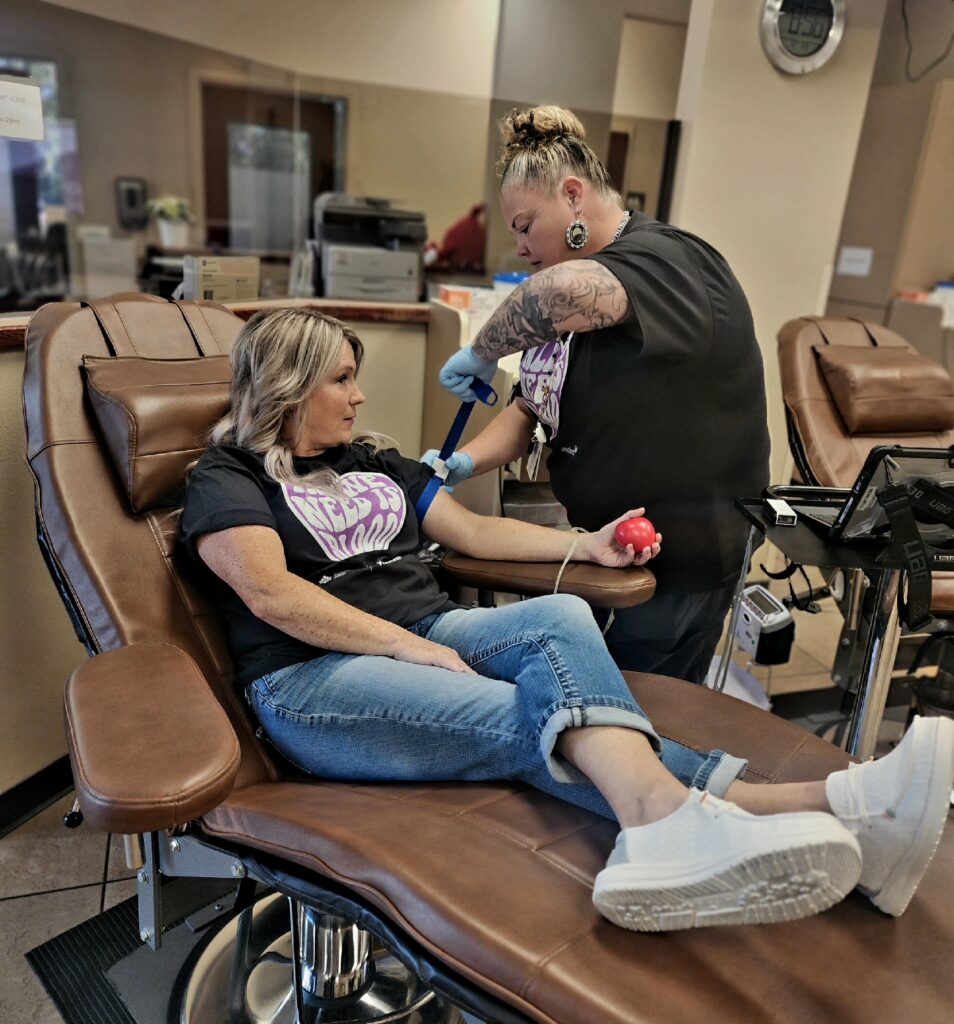Blood
New blood donor guidelines opens door for gay, bi men
More gay and bisexual men are now able to donate blood, thanks to updated donor guidelines approved by the U.S. Food and Drug Administration in late August.
Under the new guidelines, donors are asked the same series of screening questions, regardless of sexual orientation. Previously, anyone who reported male-to-male sexual contact had to be abstinent for three months to donate.
Using the same screening questions, regardless of sexual orientation, is a step forward for donors and blood recipients, said Tristan McKnight, West Division medical director at the blood donor nonprofit, Vitalant.
“This was really a well-informed, data-driven decision by the FDA,” he said. “With support of numerous blood centers, including Vitalant, to really do what is best for the patients.”
Vitalant operates numerous blood banks in the western United States, including Lewiston and Spokane locations. The nonprofit implemented the new guidelines on Aug. 21.
The old guidelines were a vestige of rules from the height of the HIV/AIDS crisis, said Chris Gresens, another medical director at Vitalant.
“When we learned more about how HIV was transmitted [in the 1980s], the blood donation community, in concert with FDA, developed criteria that excluded people most at risk for HIV,” he said. “Unfortunately, at the time, the result was that we were painting with a very broad brush.”
In 1985, the FDA ruled that anyone with a history of male-to-male sexual contact would be permanently banned from donating blood due to a higher prevalence of human immunodeficiency virus (HIV) in men who have sex with men, the population where the virus was first identified.
Improvements in testing, understanding and prevention of HIV have made the virus easier to detect and eliminated the need for such strict guidelines. In 2015, the FDA changed the lifetime ban to a 12-month deferral, then changed it again to three months in 2020.
The newest update means more gay and bi men in monogamous relationships will be eligible to donate. That’s especially important as many blood banks continue to face shortages, with many having a one to two day supply. Gresens said he hopes the change may help to incrementally improve blood supplies.
“We have been in sometimes precarious situations,” Gresens said. “Thankfully, Vitalant has not encountered any situations where patients have suffered as a result of this, but it’s been close, at times. And we sometimes do live hand to mouth.”
Some health care advocates, such as GMHC (Gay Men’s Health Crisis), say the new guidelines still send mixed messages about the HIV prevention drug known as pre-exposure prophylaxis, or PrEP, and condoms — both of which are cornerstones of HIV prevention.
One criticism is that the new guidelines do not differentiate sexual behavior that’s considered higher risk with and without a condom, despite condom use being a cornerstone of HIV prevention.
“One can say that it’s not perfect, because there are some men having sex with other men, new partners more than one partner, who are using very strong protective care who still will be, for the time being, deferred for three months from that last sexual contact,” he said.
One screening question in the new guidelines also defers patients who use PrEP, which many sexually-active gay and bi men take to prevent HIV infections.
Though breakthrough cases on PrEP are extremely rare, the FDA says the screening question for PrEP is used because the drug has the potential to cause a negative HIV test result even when an infection is present.
Despite those criticisms, the new guidelines open the door to many men who were previously excluded from donating.
“I’ve talked with several friends and a couple of colleagues who identify as being in the LGBTQ community — men who’ve had sex with other men, who are very excited about being blood donors,” Gresens said.
In the past year, the FDA also lifted donor deferrals for people who spent time in Western Europe, including the United Kingdom and France.
The reason for those deferrals was potential exposure to the organism that causes Creutzfeldt-Jakob Disease, otherwise known as Mad Cow. However, the ban was lifted after the FDA found no reported cases of Mad Cow associated with time spent in the UK, France or Ireland.
“For those who think, ‘Oh, I spent time in France, or Britain, wherever, in the ‘80s ‘90s, early 2000s, and I’m therefore deferred,’ I encourage you to reach out to us to talk with our donation schedulers who can confirm for you your eligibility or not,” Gresens said.

